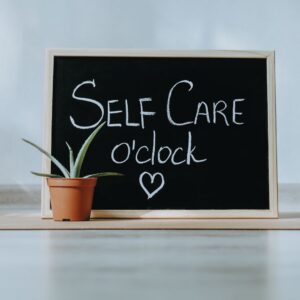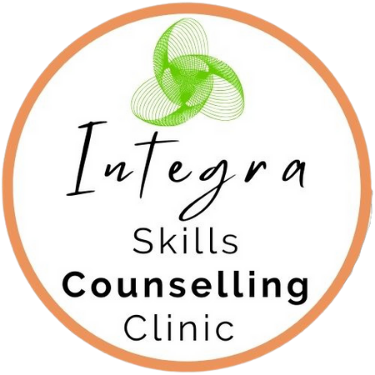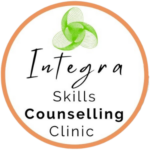As weather grows warmer and summer arrives, talk of achieving a “bikini body” becomes more prevalent. Diets, new workout regimens, and detoxes are heavily pushed on social media to “help” individuals achieve this. Body anxiety can amplify resulting from these constant reminders and it’s easy to become hypercritical of your body image. This can add stress if you’ve already been struggling with eating disorders or if you’re newer into your recovery from one.
Eating Disorders Are Complex Mental Health Conditions That Can Affect Anyone, No Matter Your Age, Race, Background, Weight, Or Gender
 The most common eating disorders include anorexia nervosa, bulimia nervosa, ortho-anorexia, and binge-eating disorder, each with unique difficulties and consequences associated with them. They are characterized by symptoms that can include abnormal eating habits, distorted body image, obsession with food, and hyper fixation on weight and appearance.
The most common eating disorders include anorexia nervosa, bulimia nervosa, ortho-anorexia, and binge-eating disorder, each with unique difficulties and consequences associated with them. They are characterized by symptoms that can include abnormal eating habits, distorted body image, obsession with food, and hyper fixation on weight and appearance.
If you are already hyper fixated on your weight and appearance, physical appearance being further pushed by diet culture on social media during the summer season can be really challenging . Changes in routine, changes in environment, and more activities involving food can grow into heighted body image concerns.
How You Can Take Care Of Yourself In The Summer If You Have An Eating Disorder?
Instead of pursuing an oppressive ideal, try to shift the way you think of your body to be more self-compassionate, health focused, and geared towards not just your physical, but also your emotional well-being.
Here are a few ways to cultivate a healthier relationship with your body and mind:

- Practice Self-Compassion: Ensure you are kind to yourself particularly when you are in difficult situations or problems. Treat yourself with the same compassion you would treat one of your friends.
- Focus on Your Health/Both Physical And Emotional, Not Your Appearance: Shifting your focus from attaining a specific body to taking care of your body, by eating nourishing foods, talking to a therapist about your feelings, nurturing your friendships, and prioritizing proper sleep for your body to rest can all help you have a much better summer.
- Challenge Societal Standards: Question and reject the messages proclaimed by the media and society that a certain body type is ideal and celebrate body diversity instead. A great way to start this is to do a “cleanse” from social media – Remove it from your phone, or at least start following accounts that are more focused on supportive mental health content rather than diet culture.
- When Needed Seek Support: Find and connect with a therapist or health professional to help if you are ready to get care for the struggles you’ve been having with disordered eating or body image issues. Therapists, support groups, andsome healthcare clinics can provide invaluable support and guidance depending on your individual needs and situation.
What Types Of Mental Health Therapy Help With Eating Disorders?
There are multiple different ways to get care for an eating disorder, Dialectical Behavioural Therapy (or DBT) is one type of therapy that has been studied extensively on how it can support recovery for those with eating disorders. In DBT, the word “dialectical” means finding a balance between two things that seem opposite: change and acceptance.With this form of therapy, you learn to accept yourself as you are while also finding the motivation to make positive changes. Another effective treatment for eating disorders is Enhanced Cognitive Behavioral Therapy (CBT-E). CBT-E is a form of psychotherapy that focuses specifically on treating eating disorders. It is a highly individualized treatment consisting of four stages that focus on adjusting the harmful thoughts, feelings, and behaviors that can keep you stuck in an eating disorder. It may also help individuals to develop healthier coping mechanisms, body image work, and self-care strategies especially during this summer season that brings additional struggles for individuals with eating disorders.
Recovering From An ED Takes Time
 How long it will take you to recover from an eating disorder, or what approach will work best for you really depends on many factors. Every person’s journey is different when it comes to eating disorder recovery. One thing to remember with eating disorders, is that they are an illness of isolation. That’s why a big part of a successful recovery is rejoining everyday life, and reconnecting with friends, loved ones and engaging in interesting activities.
How long it will take you to recover from an eating disorder, or what approach will work best for you really depends on many factors. Every person’s journey is different when it comes to eating disorder recovery. One thing to remember with eating disorders, is that they are an illness of isolation. That’s why a big part of a successful recovery is rejoining everyday life, and reconnecting with friends, loved ones and engaging in interesting activities.
As you experience the increasing temperatures of summer try to appreciate the diversity you see around you, both in nature and in those you love. Try to begin to embrace more of your previous interests, or look into new ones. This is a great first step towards healing. Imagine if you could allow yourself to grow and bloom like wild flowers in the summer. Imagine a life where there is room for you to breathe deeply and express yourself fully.
Your Summer Of Support
What would your life be like if you didn’t have to think about the numbers on the scale? Recovery from disordered eating is possible, and it’s best done with the support of others. If you’re ready to talk to someone about your eating disorder, please reach out. Integra Skills Counselling offers therapy for eating disorders online, or in person at our Burlington, Ontario location.
We wish for you a summer with less worry about your size, and more focus around being with friends, moving in nature, and appreciating all that this beautiful world can share.
References
American Psychiatric Association. What Are Eating Disorders?
(https://www.psychiatry.org/patients-families/eating-disorders/what-are-eating-disorders) Accessed 06/13/2024.
The International journal of eating disorders. Effectiveness of enhanced cognitive behavior therapy for eating disorders: A randomized controlled trial.
(https://www.ncbi.nlm.nih.gov/pmc/articles/PMC7317943/) Accessed 06/13/2024.
Dialectical Behavior Therapy and Eating Disorders: The Use of Contingency Management Procedures to Manage Dialectical Dilemmas
https://pubmed.ncbi.nlm.nih.gov/26160619/
National Institute of Mental Health. Eating Disorders
(https://www.nimh.nih.gov/health/topics/eating-disorders/index.shtml). Accessed 06/13/2024.
Community Resources
https://www.hnhbhealthline.ca/listservices.aspx?id=10209
https://www.ementalhealth.ca/index.php?m=record&ID=10675

